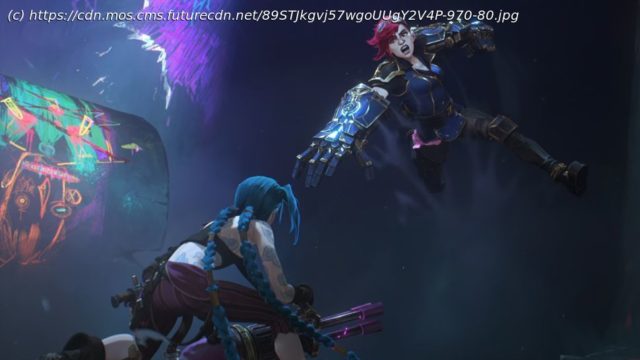Arcane season 2 has debuted on Netflix – here are my spoiler-light thoughts on its first six episodes.
Spoilers follow for Arcane season 2’s first six episodes.
I love Arcane. Just ask anyone who’s listened to me wax lyrical – with increasing regularity, some might say – about the history-making Emmy award winner since it made its Netflix debut in November 2021.
With its predecessor ending on a stunning cliffhanger, the wait for Arcane season 2 has been excruciating. However, as the saying goes, « good things come to those who wait », so I’ve constantly reminded myself that the three-year gap between seasons would be worth it.
And it absolutely was. Having watched its first six episodes, I staunchly believe Arcane’s second and final chapter is a monumental artistic and narrative achievement that, its final three installments notwithstanding, is a near-perfect duology capper to Netflix, Fortiche Production, and Riot Games’ first League of Legends (LoL) animated adaptation.The hunt begins
Season 2 begins mere moments after its forebear’s dramatic finale. Jinx’s (Ella Purnell) deadly attack on Piltover’s council leaves three of its members dead, including Caitlyn’s (Katie Leung) mom Cassandra, and many others, Viktor (Harry Lloyd) among them, severely wounded.
As the council’s traumatized leader Jayce (Kevin Alejandro) attempts to save Viktor’s life and his fellow councillor/love interest Mel (Toks Olagundoye) mobilizes the rest of Piltover’s scarred ministers to plan their next move, a grief-stricken Caitlyn takes matters into her own hands. Establishing a five-member strike team that includes Jinx’s estranged and guilt-riddled sister Vi (Hailee Steinfeld), Caitlyn leads her newly-formed squad into Zaun with three aims: capture Jinx, shut down production of the dangerous and addictive substance known as shimmer, and neutralize anyone still loyal to Zaun’s recently deceased defacto leader Silco (Jason Spisak), such as Sevika (Amirah Vann).
Succeeding won’t be easy. Silco’s death has ignited a civil war among Zaun’s chem-barons, with gang bosses like Smeech (Lenny Citrano) taking advantage of the current power vacuum to try to become the undercity’s new crime kingpin.
Caitlyn’s squad, then, may have a hard time tracking down Jinx at such a tempestuous time. Plus, with Zaunites learning of Jinx’s successful strike on PIltover’s powerbrokers, Vi’s younger sibling suddenly finds herself installed as a revolutionary figure they can rally behind – a development that’ll make Caitlyn and Vi’s mission even harder to accomplish.
As a character-driven spectacle, Arcane’s main strength lies in its approach to compelling us to emotionally invest in each individual’s journey. It’s not unlike HBO’s Game of Thrones in that respect, with the evolution – and, in some instances, de-evolution – and decision-making of its morally complex cast provoking viewers to frequently switch allegiances between them. Indeed, the war that erupts between Piltover and Zaun will flip audiences’ devotion to some characters on its head, with Zaun’s major players adopting more heroic roles early in season 2 and Piltover-based individuals positioned as Arcane’s new antagonists-in-chief.
What struck me most, though, is how the overarching plot undergoes its own structural evolution. Like season 1, episodes follow multiple storylines, with some converging to satisfyingly form conducive, singular narratives as season 2 progresses. However, each chapter’s focus on specific characters – established members of its strong female contingent gifted even more agency than last season, or otherwise – lends them an unexpected yet gratifying individuality.
Take episode 1, titled ‘Heavy Is The Crown’, for instance, whose narrative is anchored by a heartbroken and vengeance-fuelled Caitlyn. Meanwhile, season 2’s third episode, aka ‘Finally Got The Name Right’, sheds light on Ambessa’s past, her reasons for traveling to Piltover, and the mysterious dangers that lurk in the shadows of her home nation Noxus. Then there’s episode 4, named ‘Paint The Town Blue’, where Jinx learns of her symbolic position among Zaun’s downtrodden populace that instigates her transition from villain to unlikely anti-hero.






